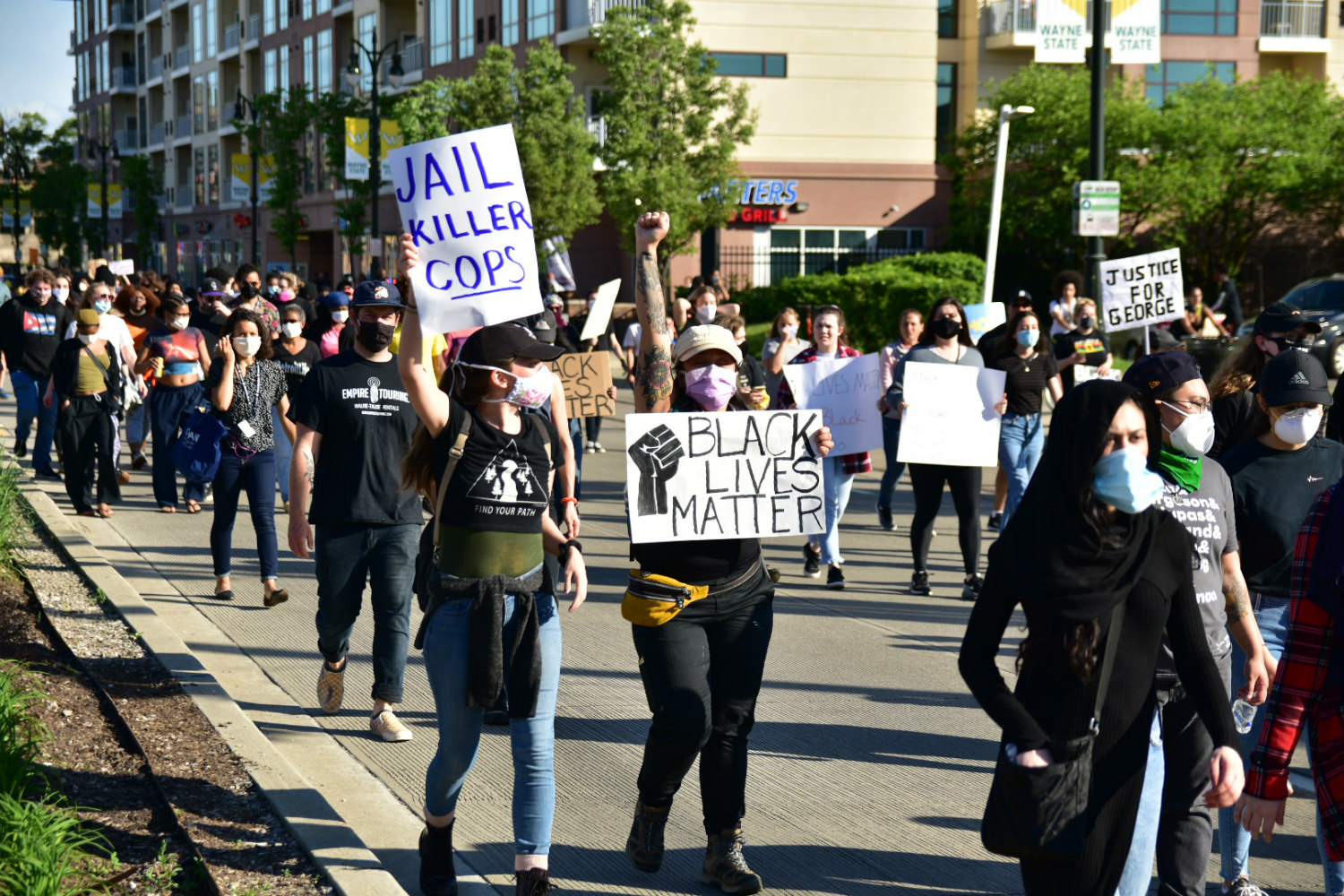Photo Credit: Keviyan Richardson
Spring 2020, Riverwise Editorial
A Matter of Survival
The brutal murder of George Floyd has propelled thousands of people into the streets demanding a radical shift in the way that communities are policed.
Worldwide protests, happening in the midst of a global pandemic, are forcing all of us to pivot more quickly than normal. While COVID-19 continues to ravage the health of our most vulnerable, younger, more active citizens have taken to the streets globally in protest of state brutality. It’s an incredible moment.
The response across the country, in big cities and small towns, gives us hope that the current turmoil is preparing us for something even bigger. As street forums open up for public debate, larger segments of society are taking up the principles conveyed by the Movement for Black Lives. Mutual aid and compassion are paramount for those families stricken down by the coronavirus, and we are seeing a transformation of values needed to challenge entrenched systems. New leadership is emerging from an inclusive, multi-racial coalition which is focused on compassion and self-determination, rather than profit and exploitation.
The protests against police killings are supported by years of careful organizing and visionary thinking about community safety.
In Minneapolis, the Movement for Black Lives has been working on strategies to abolish police in systematic ways. These efforts are ushering in new thinking around how to police our own communities on our own terms. Recently, the Minneapolis City Council declared that its police force would not only be defunded but dismantled. In explaining the decision, the City Council said, “Decades of police reform efforts have proved that the Minneapolis Police Department cannot be reformed and will never be accountable for its action.” Members of that Council have committed to a year-long process during which they will work with community organizations to identify community needs. They are calling for a reallocation of $45 million of the Minneapolis municipal budget to insure crucial, beneficial community services.
Riverwise fully supports the abolition of police. Self-determination and community protection are critical elements for liberation. Here in Detroit, community safety, without police, has been advocated for years by such organizations as Black Youth Project 100, the Detroit Justice Center, Peace Zones 4 Life, and many others. Peace Zones 4 Life—conceived by the Detroit Coalition Against Police Brutality— was calling for these types of reforms in the 90s. Community security was the cornerstone of the Black Panther Party.
The continued loss of life, mass incarceration of Black people, brutalization by so-called law enforcement, the traumatization of our struggling communities— all of these injustices are now being looked at anew, on a national level. The abolition of policing as we know it is a conversation that is long overdue in America.
In our recent special issue on police surveillance in Detroit we featured one community initiative focused on self-determination in securing our neighborhoods— ‘Green Chairs, Not Green Lights.’ This is the other side of defunding and radically reforming the police system. We need to restore our sense of community and mutual aid. Eastside Detroit residents have used the green chair as a symbol of unity and safety within neighborhoods as one way to rethink our responsibility to one another.
The way in which community pressure was applied to Minneapolis Mayor Jacob Frey and the action of Minneapolis City Council also reminds us that democracy can only be created by our collective actions. We in Detroit are facing a far less responsive city government. Mayor Duggan and most of the Detroit City Council have failed to enact similar measures, refusing to take the lead from grassroots organizations that have advocated for more community resources to reduce crime and eliminate over-policing. It is clear we have to intensify our street protests toward a Mayor, City Council and Board of Police Commissioners who fail to challenge Police Chief James Craig on a number of issues, including police surveillance.
In a recent interview, Alex Vitale, author of the book, The End of Policing, said, “This is about rethinking our public political priorities and expressing that through a budget process that tries to lift individuals in communities up instead of criminalizing them.”
This rethinking is creating a new consciousness about how to transform not only the police but all the systems they have been put in place to protect. Through these efforts, the possibility of a new world is born.


